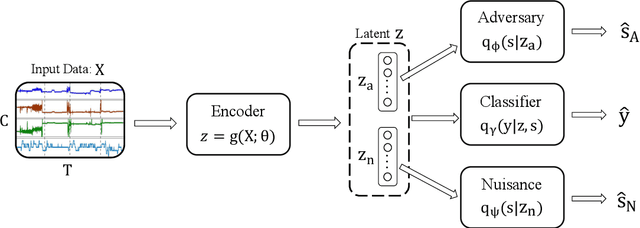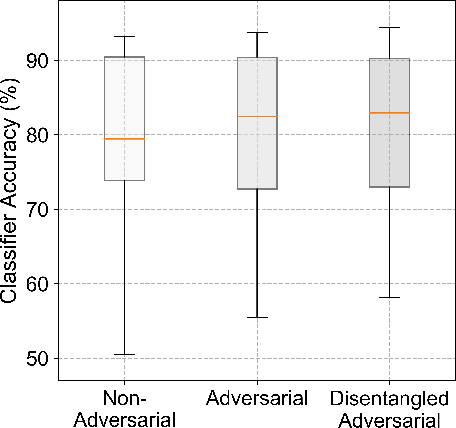Disentangled Adversarial Transfer Learning for Physiological Biosignals
Paper and Code
Apr 15, 2020


Recent developments in wearable sensors demonstrate promising results for monitoring physiological status in effective and comfortable ways. One major challenge of physiological status assessment is the problem of transfer learning caused by the domain inconsistency of biosignals across users or different recording sessions from the same user. We propose an adversarial inference approach for transfer learning to extract disentangled nuisance-robust representations from physiological biosignal data in stress status level assessment. We exploit the trade-off between task-related features and person-discriminative information by using both an adversary network and a nuisance network to jointly manipulate and disentangle the learned latent representations by the encoder, which are then input to a discriminative classifier. Results on cross-subjects transfer evaluations demonstrate the benefits of the proposed adversarial framework, and thus show its capabilities to adapt to a broader range of subjects. Finally we highlight that our proposed adversarial transfer learning approach is also applicable to other deep feature learning frameworks.
 Add to Chrome
Add to Chrome Add to Firefox
Add to Firefox Add to Edge
Add to Edge